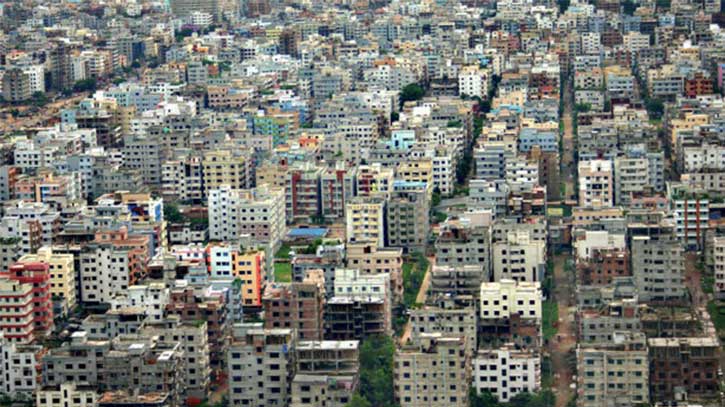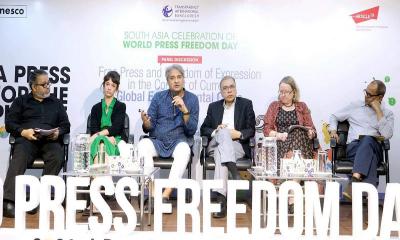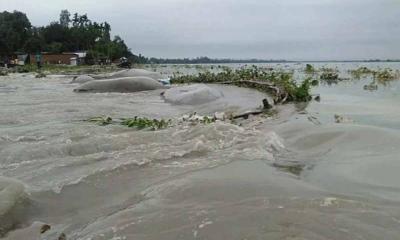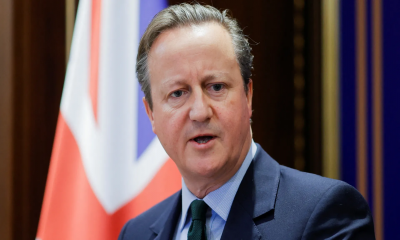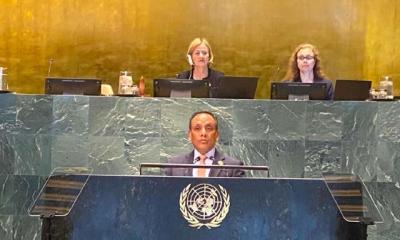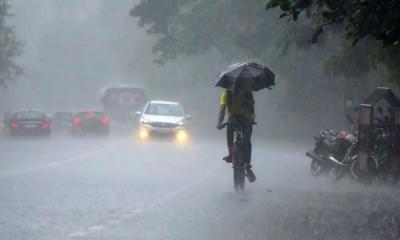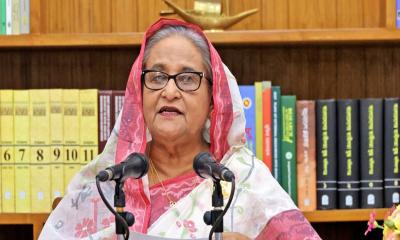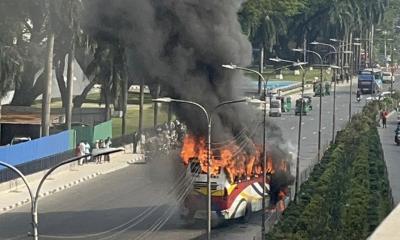Dhaka is one of the 20 most unsustainable megacities in the world, says a new climate report titled, "Ecological Threat Report (ETR)."
The Institute for Economics and Peace (IEP)released the report on Wednesday.
According to the report, South Asia is home to eight of the world's 20 most unsustainable megacities, with half of them in India alone.
Dhaka, Lahore, Kolkata, Delhi, Karachi, Mumbai, Chennai, and Hyderabad are eight of the 20 cities facing the highest population growth and worst vulnerability to ecological threats.
Dhaka, a city of 22.6 million people, is affected by ecological changes in several ways. It floods regularly, it is one of the most densely populated cities in the world, and the city struggles to deal with waste, said the Ecological Threat Report.
Bangladesh has seen 254 natural disasters respectively since 1981, according to the report.
As per the report, Delhi suffered the highest air pollution of these cities. Air pollution was responsible for economic losses totalling USD 8.1 trillion, or 6.1 per cent of global economic output. While India is the world's third largest polluter, only 38.8% of its population consider climate change to be a serious threat.
At least 56% countries and territories (127 out of 228) monitored by the ETR are facing catastrophic ecological threats. Europe is predicted to see high levels of water stress over next 20 years, with increased water stress predicted in Greece, Italy, Macedonia, Portugal and the Netherlands, amongst others.
The countries most vulnerable to ecological threat are clustered in the three least peaceful regions: sub-Saharan Africa, the Middle East & North Africa (MENA), and South Asia.
In 2021, almost 92% of the world's undernourished people lived in low to very low peace countries, said the report. Megacities in low peace countries, like Kinshasa and Nairobi, have the highest population growth rates, low coping capacities, and will struggle to manage ecological threats. The world's 40 least peaceful countries will increase their population by 1.3 billion by 2050, representing 49% of the world's population.
Forty-one countries are currently facing severe food insecurity, impacting economic development, public health, and social harmony, with 830 million people at risk, with 89% residing in sub-Saharan-Africa, followed by MENA with 49 million. Food insecurity is connected to water stress, defined as "when more than 20% of the population do not have access to clean drinking water".
At least 23 out of 27 hotspot countries facing climate catastrophes with extremely low societal resilience are clustered in sub-Saharan Africa, said the report.
The report's main overall finding is that the degradation of resources leads to violence and violence leads to the degradation of resources, according to the press release.


